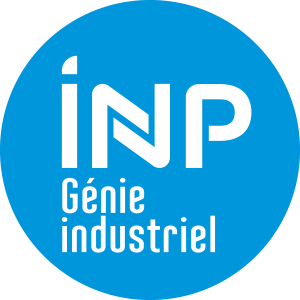Volumes horaires
- CM 27.0
- Projet -
- TD 27.0
- Stage -
- TP -
- DS -
Crédits ECTS
Crédits ECTS 6.0
Objectif(s)
(This class is conducted in English)
Please read the required skills before enrolling in this class, programming skills are not mandatory.
By the end of the course, students will:
A. Implement various multi-criteria decision aiding methods.
B. Gain an understanding of how Artificial Intelligence techniques, particularly Machine Learning, can be applied to decision aiding.
Contenu(s)
This course is divided into two parts, which may be offered in varying sequences based on teachers' availability:
Part A:
This chapter delves into multi-criteria decision aiding methods, such as AHP and PARETO, through a combination of lectures and exercises (CM and TD). A real case study will illustrate the application of the AHP method. By the end of Part A, students will grasp operational multi-criteria decision support methods. The structure of Part A includes:
• Introducing the key concepts of multi-criteria decision Aiding
• Description of the implementation process for multi-criteria decision support
• Formalization of multi-criteria decision support problems
• Implementation of AHP, PARETO, ELECTRE, and other methods.
Part B:
This part focuses on Artificial Intelligence (AI), specifically machine learning, within the context of multi-criteria decision aiding. Emphasis is placed on utilizing machine learning as a decision aiding tool. The content of Part B comprises:
• Introduction to machine learning techniques for solving multi-criteria decision support problems, including supervised/unsupervised and reinforcement methods. Programming is not discussed in details.
• Case studies employing these techniques, accompanied by a literature review for group work.
• Involvement of industrial partners, providing insights from their experiences.
• General knowledge of manufacturing and supply chain management, including scheduling and inventory management.
• Ability to conduct a literature review, including searching for and analyzing scientific articles.
• Basic understanding of statistics, including correlation analysis and linear regression, is appreciated.
• Familiarity with Python for utilizing certain packages is beneficial but not mandatory.
• Knowledge of simulation software (e.g., Arena) is helpful but not required.
Evaluation of Part A: (Individual written exam + group report for the case study) -> ("A1")
Evaluation of Part B: (group report for case studies + group presentations) ->("B1")
Evaluation of session 1 (N1) = "A1" (50%) + "B1" (50%)
Evaluation of session 2 (N2) = Individual written exam for part A ("A2" 50%) + Synthesis of articles or interview for part B ("B2" 50%)
Repeated and unjustified absences will impact the final score and may lead to a score up to 0 for this class.
Using ChatGPT for writing reports is prohibited and lead you to a score of 0.
Evaluation of session 1 (N1) = 0.5 A1 + 0.5 B1
Evaluation of session 2 (N2) = 0.5 A2 + 0.5 B2
L'examen existe uniquement en anglais 
Le cours est programmé dans ces filières :
- Cursus ingénieur - Master 2 GI SIE SOM - Semestre 9 (ce cours est donné uniquement en anglais
 )
) - Cursus ingénieur - Master 2 GI GID DPD - Semestre 9 (ce cours est donné uniquement en anglais
 )
) - Cursus ingénieur - Ingénieur IdP - Semestre 9 (ce cours est donné uniquement en anglais
 )
) - Cursus ingénieur - Master 2 GI GID GOD - Semestre 9 (ce cours est donné uniquement en anglais
 )
) - Cursus ingénieur - Master 2 GI SIE SPD - Semestre 9 (ce cours est donné uniquement en anglais
 )
) - Cursus ingénieur - Ingénieur ICL - Semestre 9 (ce cours est donné uniquement en anglais
 )
) - Cursus ingénieur - Ingénieur IPID - Semestre 9 (ce cours est donné uniquement en anglais
 )
)
Code de l'enseignement : 5GUC4202
Langue(s) d'enseignement : 
Vous pouvez retrouver ce cours dans la liste de tous les cours.
Part A :
• B. Roy. Multicriteria Methodology for Decision Aiding. Kluwer Academic (1996).
• Saaty, Thomas L. Relative Measurement and its Generalization in Decision Making. Review of the Royal Academy of Exact, Physical and Natural Sciences, Series A: Mathematics (RACSAM) 102 (2): 251–318 (2008)
Part B :
• Cadavid, J. P. U., Lamouri, S., Grabot, B., Pellerin, R., & Fortin, A. (2020). Machine learning applied in production planning and control: a state-of-the-art in the era of industry 4.0. Journal of Intelligent Manufacturing , 1-28
• Faustmann, G. (2019). Application of machine learning in production scheduling (Doctoral dissertation, Wien).
•Géron, A. (2019). Hands-On Machine Learning with Scikit-Learn, Keras, and TensorFlow: Concepts, Tools, and Techniques to Build Intelligent Systems . O'Reilly Media.

Programme pédagogique 2024-2025
Parcours ingénieur statut étudiant
- Tronc commun 1ère année
Présentation
Semestre 5 | Semestre 6
- Filière ICL
Présentation
Semestre 7 | Semestre 8 | Semestre 9 | Semestre 10
- Filière IDP
Présentation
Semestre 7 | Semestre 8 | Semestre 9 | Semestre 10
Parcours ingénieur statut apprenti
- Filière IPID
Présentation
Semestre 5 | Semestre 6 | Semestre 7 | Semestre 8 | Semestre 9 | Semestre 10
Contacts
Equipe académique
- Directeur des études
Pierre Lemaire - Responsable 1ère année
Abdourahim Sylla - Responsable filière ICL
Irène Gannaz - Responsable filière IDP
Yann Ledoux - Responsables filière IPID
Olivier Boissin
Nicolas Catusse
Equipe administrative
- Responsable scolarité
Laure Jouffray - Gestionnaire 1ère année
Valérie Demicheli - Gestionnaire 2ème année
Sylvie Malandrino - Gestionnaire 3ème année et parcours spéciaux
Vincente Odier - Gestionnaire Apprentis
Carina Cataldi



